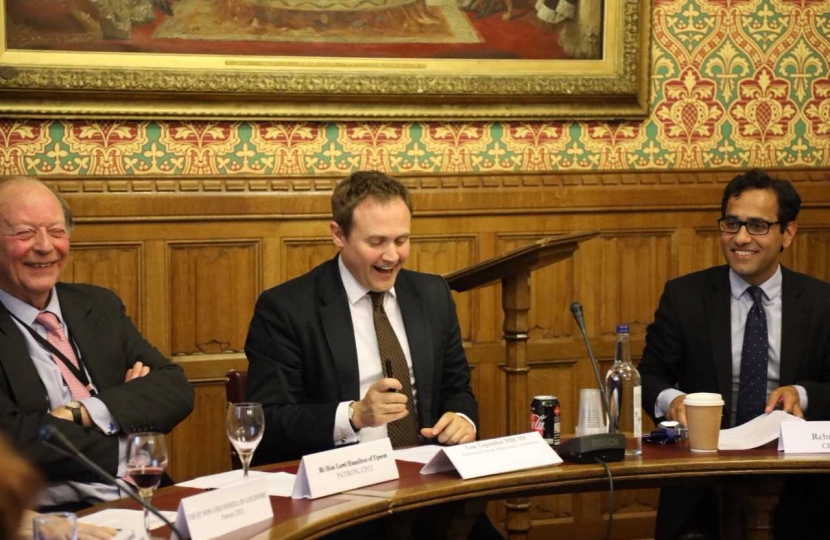
Tom Tugendhat MBE MP
Chairman, Foreign Affairs Select Committee to talk on "UK and Foreign Affairs"
Tom Tugendhat was elected as Member of Parliament for Tonbridge and Malling in 2015 and was re-elected in 2017. On his return to Parliament, he was elected to be Chair of the influential Foreign Affairs Select Committee. He ran for office after leaving the British Army in July 2013. As a Reservist, he served on operations in Iraq and Afghanistan and, most recently, as the military assistant to the Chief of the Defence Staff. He also worked for the Foreign Office and helped set up the National Security Council of Afghanistan and the government in Helmand Province. Tom grew up in London and Sellinge, near Ashford, read Theology at Bristol University and studied Islamics at Cambridge University for a Master’s. His study included learning Arabic in Yemen. After graduating, Tom was a journalist based in Beirut, writing about the conflict as well as regional politics and economics. Politically, Tom has been campaigning for transparency in financial institutions, including in pensions and asset management companies. He is a Dementia Friend and an active supporter of the Alzheimer's Society. He has served on the Public Administration and Constitutional Affairs Committee and writes regularly on a wide range of issues for outlets including the Spectator, Daily Telegraph, the Times, and the Financial Times. Tom was appointed MBE for operational service in Afghanistan. He remains a reserve officer, is married to Anissia and has two children.
Rehman Chishti MP, Chairman, opened the meeting. The Rt Hon the Lord Hamilton of Epsom introduced the speaker announcing he would give a tour d'horizon.
We live in ferociously interesting times - Tom Tugendhat MP
The fall of Berlin Wall produced false hopes; simultaneously, the rise of political Islam which we have had to deal with since 9/11.
Russia: initially supportive of our operations in Afghanistan, then saw opportunity. We were complicit in the rise of the current regime. Putin appreciated this weakness and has exploited it, most recently in Syria.
Syria. Assad to blame, but Russia and Iran are responsible for prolonging the conflict. The chaotic consequences of the Arab uprising will be with us for a generation
China. Increasingly asserting itself The big question: will it abide by the rules that have enabled its dramatic rise so far?
Three challenges come at us at a time when we face disillusionment with the status quo at home. A legacy of Iraq and the financial crisis, compounded by the way that social media algorithms work.
We have to acknowledge that the critics have a point; but we should also ask them what they would put in place of the institutions that we have; at the same time we need to confront the need for reform of those institutions - eg the size and shape of the UN Security Council. I think the rules-based system we have inherited is worth fighting for.
Three challenges: five strengths. Understanding, influence, trade, co-operation, and force. Diplomatic and intelligence networks; soft power (do more with education); trade and especially the City; multi-lateral relationships, including the Commonwealth, and the military.
Most pressing challenge is Russia. FAC investigation: possible next steps; Russia Co-ordination Group - and need for whole of Government review.
Rule of law as our greatest asset: brings business to these isles, we must fight to safeguard our reputation, both to attract business and to convince people here that we are driven by a determination to ensure fairness, creating a stronger society that enables us to project our strengths abroad.
The Rt Hon the Lord Howell of Guildford summed up at the end commending Tom for high office in due course.
